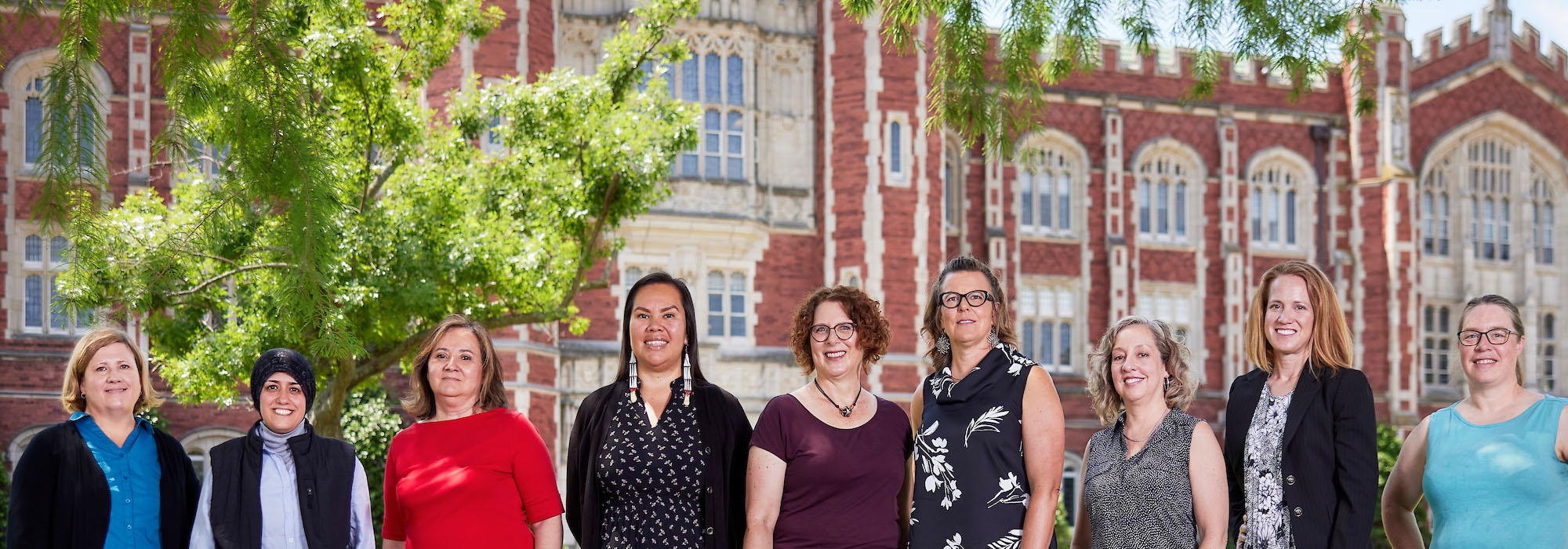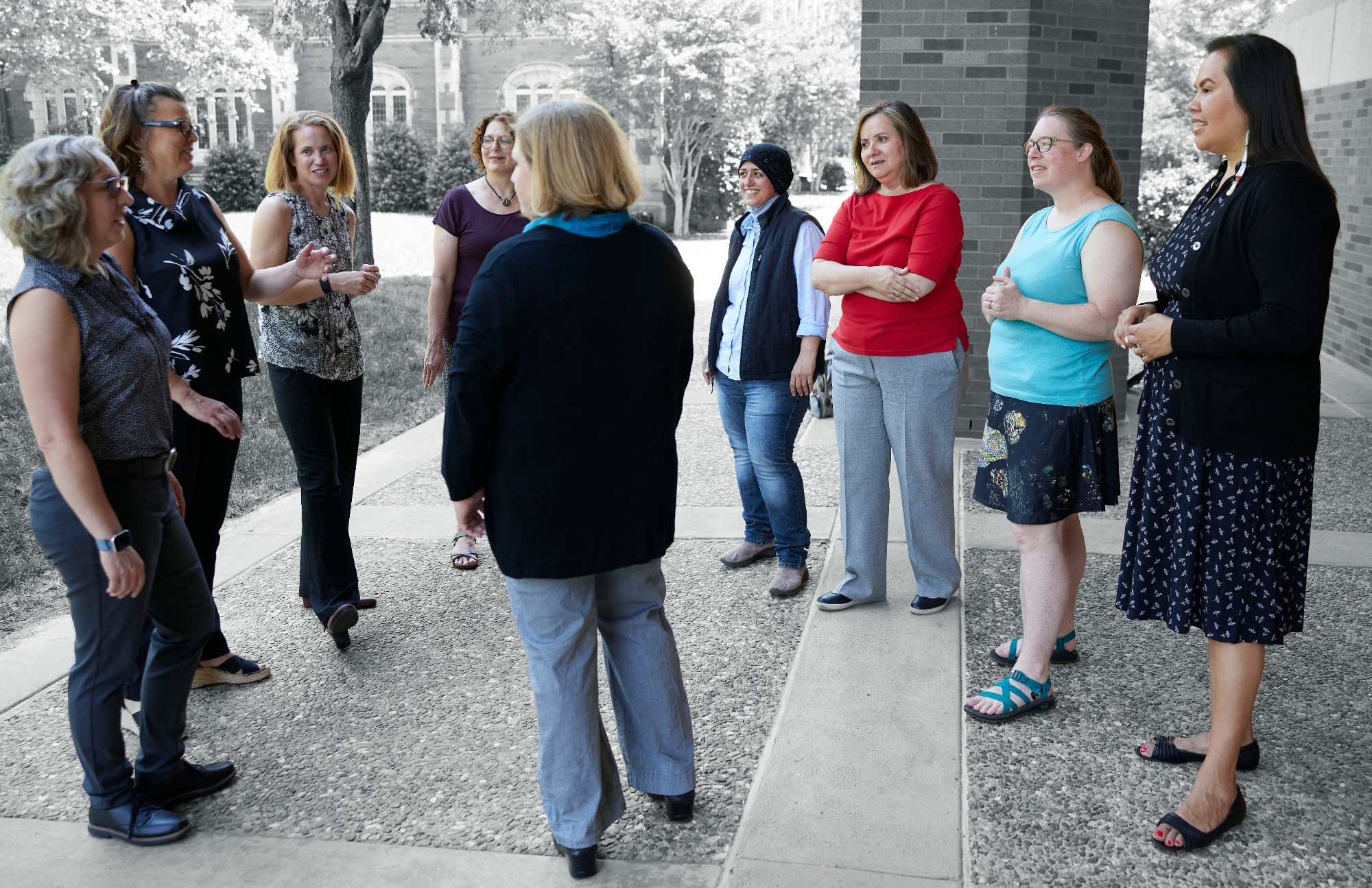


One scholar can influence local change, but nine intend to bring about transformation within the institution and beyond. To achieve that goal, a group of OU interdisciplinary faculty members joined forces and sought funding from the National Science Foundation to re-envision the faculty annual performance evaluation process. The OU Elevate team members have committed their research skills, teaching expertise, leadership in service, and administrative practice to the project.
Across higher education, existing annual evaluation systems for faculty performance largely fail to document the impact of the entire scope of faculty work. This results in many faculty activities that are most impactful and critical to the missions of educational institutions, such as inspiring and effective teaching, synergic and convergent research, and engaged and meaningful service, being undervalued. While many academic units or colleges may have attempted to develop faculty annual evaluation systems that address these challenges, there is little evidence-based guidance on how to identify, measure, and reward faculty impact that is in alignment with institutional goals and societal needs. OU Elevate builds upon lessons from prior NSF-funded projects, literature on faculty evaluation and workload, and extensive faculty input from across STEM academic units at OU to develop a comprehensive and customizable toolkit for transparent faculty annual performance evaluation and workload distribution. The toolkit will be piloted, validated, and institutionalized across all OU STEM units, as well as shared with other institutions.
Beyond development of the faculty annual evaluation toolkit, OU Elevate will work closely with volunteer units to customize the evaluation toolkit to their disciplinary context, an exercise that will provide feedback to further improve the toolkit. The implementation of this toolkit will provide units with evaluation metrics that can be used to incentivize and reward impactful faculty work that aligns with unit and institutional goals. When revised evaluation policies and accountability measures are implemented, transparent workload distribution and annual faculty evaluations can be achieved for all faculty, supporting increased satisfaction with workload and evaluation systems, ultimately impacting retention and promotion of faculty, and helping OU become a top tier university that is a place where all faculty, staff, and students thrive. The work carried out through the OU Elevate project will propel OU into a leadership role at the national level, providing a model that can be adopted by other institutions in revising and re-envisioning faculty annual evaluation systems.









